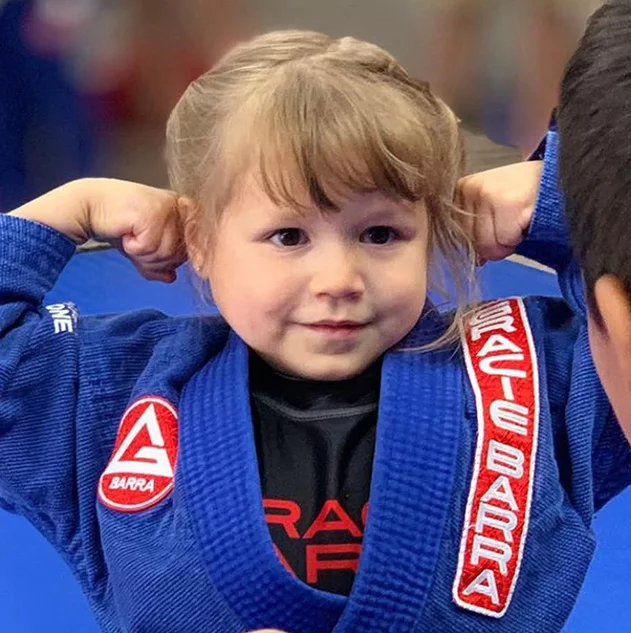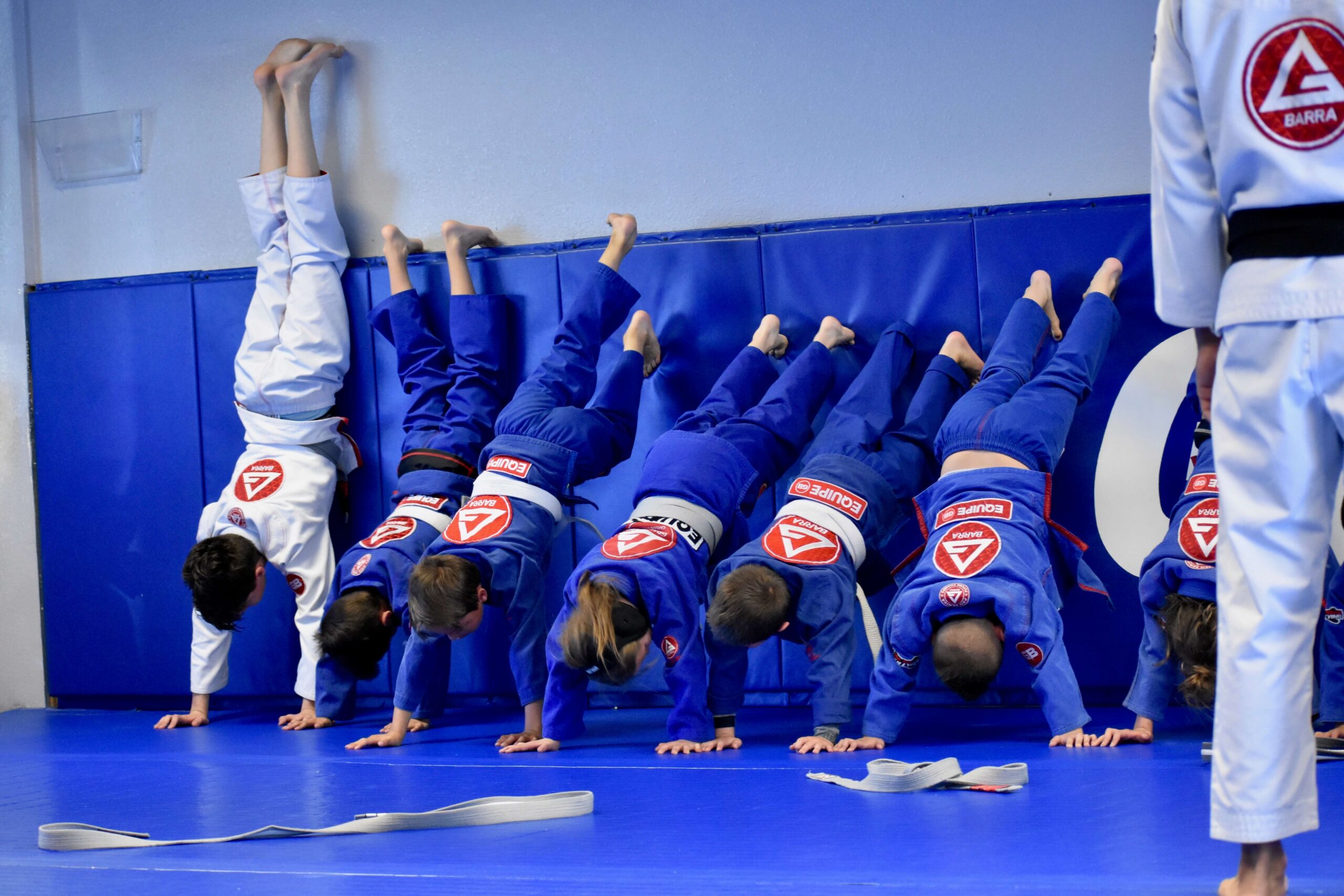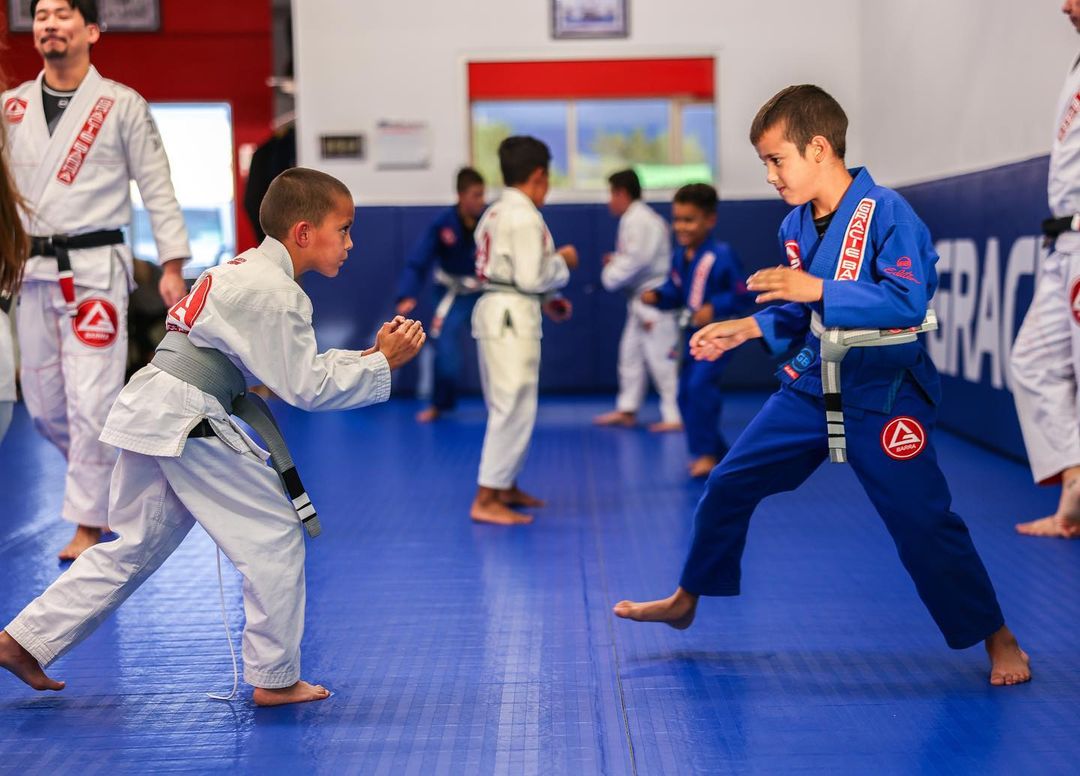Introducing:
Brazilian Jiu-Jitsu (BJJ) stands as a practice celebrated for its diverse advantages. Particularly for children’s development, BJJ is renowned. In this article, we explore the ways BJJ nurtures holistic growth. It enhances both physical and mental facets for children.

Muscular Development and Endurance:
Brazilian Jiu-Jitsu (BJJ) engages diverse muscle groups, promoting children’s strength and stamina. Techniques like grappling challenge muscles.
Regular training involves movements such as takedowns and holds, enhancing strength and endurance.
Motor Coordination Improvement:
BJJ demands precise body coordination, refining children’s motor skills. They learn accurate technique execution, aiding in coordination.
Improved motor skills extend to better performance in various physical activities.
Flexibility and Balance Enhancement:
Fluid movements in BJJ enhance flexibility and balance for children. Techniques focus on stretching and equilibrium.
Consistent practice leads to greater flexibility in muscles and joints, enhancing body control.
Stimulation of Bone Growth and Proper Posture:
BJJ’s demands stimulate bone growth, crucial for children’s development. Weight-bearing movements aid bone health.
Technique practice reinforces proper posture, reducing risks of musculoskeletal issues.
Cardiovascular Development:
BJJ’s dynamic drills and sparring boost cardiovascular fitness. Continuous movement enhances heart health.
Engaging in aerobic exercises elevates heart rate, improving endurance over time.
Cultivation of Discipline and Self-Confidence:
Structured training in BJJ instills discipline and respect. Children learn commitment through rules and etiquette.
Progress and overcoming challenges in BJJ fosters self-confidence, shaping positive self-image.

Encouragement of Socialization and Respect for Others:
The BJJ environment fosters interaction among children of diverse backgrounds. Joint practice enhances social skills.
Interacting with peers of varied ages promotes respect and camaraderie, forging lasting friendships.
Development of Concentration and Focus:
BJJ demands unwavering attention, sharpening children’s focus. Following instructions and executing techniques hones cognitive skills.
Enhanced concentration transfers to improved learning capabilities in other areas.
Promotion of Mental Health and Emotional Well-being:
Regular BJJ practice alleviates stress and anxiety, boosting emotional balance. Children experience improved well-being.
Beyond physical benefits, BJJ nurtures mental health, fostering an overall sense of positivity.
Conflict Resolution Skills Development:
BJJ instills peaceful conflict resolution. Techniques teach effective communication and assertiveness, empowering children.
Learning personal defense aids in handling difficult situations constructively.
Encouragement of Persistence and Resilience:
BJJ’s journey demands persistence and resilience. Overcoming challenges on the mat fosters resilience.
Children develop a mindset to confront everyday adversities with strength.
Cultivation of Values and Sportsmanship Ethics:
BJJ emphasizes integrity, humility, and sportsmanship. Children learn fair play, honesty, and rule respect.
These values extend beyond the mat, shaping character in various life aspects.

In Summary:
Brazilian Jiu-Jitsu is a potent tool for children’s holistic growth, encompassing physical, mental, and social development.BJJ instills values like discipline, respect, persistence, and sportsmanship, in addition to enhancing physical and mental strength.Participation in BJJ cultivates self-defense skills and a robust foundation for success in various life aspects.Investing in BJJ offers children more than a mere physical activity; it molds responsible, confident, respectful individuals.


